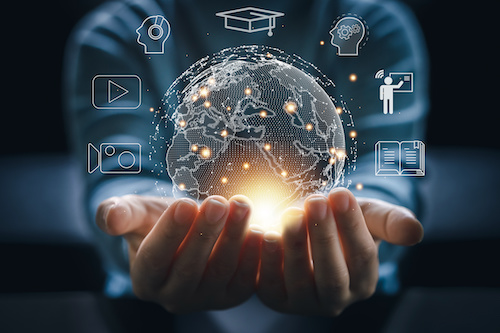Artificial Intelligence (AI) is no longer just a concept from science fiction; it’s a reality that is reshaping industries and transforming how we live, work, and interact with technology. From personal assistants like Siri and Alexa to complex algorithms that can predict financial markets or diagnose diseases, AI is becoming deeply integrated into our daily lives. But what exactly is AI, and why is it so impactful? This blog explores the rise of AI, its real-world applications, benefits, challenges, and what the future holds for this groundbreaking technology.
Understanding AI
At its core, AI refers to the simulation of human intelligence by machines. Through complex algorithms, AI can learn from data, recognize patterns, and make decisions, all without being explicitly programmed for every single task. Machine learning, a subset of AI, focuses on training models to improve over time, while deep learning utilizes neural networks to mimic the way the human brain operates. This allows AI systems to not just follow commands but also to think, adapt, and evolve.
What sets AI apart from traditional programming is its ability to work autonomously, continuously improving as it processes more data. This ability to learn, reason, and problem-solve has opened new frontiers in automation and decision-making.
Applications of AI
AI’s versatility allows it to be applied across various fields, revolutionizing industries:
- Healthcare: AI is used in medical imaging, diagnostics, and personalized treatments. Algorithms can analyze scans, detect diseases at an early stage, and even suggest optimal treatments based on a patient’s genetic profile. Robotic surgeries powered by AI are also increasing precision and reducing recovery time.
- Finance: AI systems monitor millions of transactions in real-time to detect fraud, identify suspicious activity, and ensure secure banking. Financial institutions also use AI for risk assessment and to make lightning-fast trades based on data-driven predictions.
- Education: AI is enhancing learning by offering personalized learning paths, analyzing student performance, and providing instant feedback. It is also automating administrative tasks, allowing educators to focus more on teaching than on paperwork.
- Entertainment: Whether you’re watching Netflix or scrolling through social media, AI algorithms are working behind the scenes to recommend content that matches your interests. AI has even started creating art, music, and scripts, pushing the boundaries of creativity.
Benefits of AI
AI has already shown significant benefits across multiple domains:
- Increased Efficiency: Machines powered by AI can handle repetitive, time-consuming tasks with unparalleled efficiency. In industries like manufacturing, AI-driven automation is reducing downtime and speeding up production lines.
- Enhanced Decision-Making: AI can process vast amounts of data faster than humans, making it a valuable tool in decision-making. Businesses leverage AI insights to predict market trends, optimize supply chains, and make more informed decisions.
- Cost Savings: AI can streamline operations, automate customer service through chatbots, and reduce operational costs by minimizing human error.
- Improved Personalization: In marketing, AI enables brands to tailor messages and products to individual consumer preferences, leading to more relevant content and better customer engagement.
